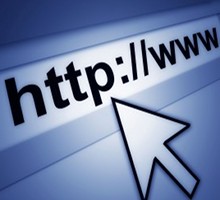Removing Barriers To Broadband Access
 Early this month, a senator of the republic urged the Philippine government to fast-track the advancement in broadband technology in the country to help create jobs, particularly for the marginalized sectors. He said the benefits of broadband technology are enormous, from enabling young minds to explore educational technologies, empowering women through information and skills knowledge. He added that there are still critical issues that must be addressed to enable marginalized people to lift themselves out from poverty and illiteracy through the Internet.
Early this month, a senator of the republic urged the Philippine government to fast-track the advancement in broadband technology in the country to help create jobs, particularly for the marginalized sectors. He said the benefits of broadband technology are enormous, from enabling young minds to explore educational technologies, empowering women through information and skills knowledge. He added that there are still critical issues that must be addressed to enable marginalized people to lift themselves out from poverty and illiteracy through the Internet.
Sen. Allan Peter Cayetano, Senate Minority Leader, stressed that the government should make broadband affordable through regulation and market forces so that it amounts to less than 5 percent of average monthly income. Cayetano also noted that limiting market entry and tax services are primary obstacles that government must remove soon. The concern in today’s inefficient Internet service has serious implication to the business sector particularly for the developing business process outsourcing (BPO) industry in the country.
The minority leader said that legislative and regulatory frameworks must be established to make broadband technology more accessible, particularly in many hard-to-reach places of the archipelagic Philippines. The government should take drastic measures to address the country’s consistent low rating in the global broadband speed. In the computerized 2010 national election, it was revealed that only 60% of the country have Internet connectivity.
In the latest broadband speed survey of netindex.com, the Philippines ranked 133rd out of the 170 countries surveyed with an embarrassing Internet speed of a 1.73 Mbps. Other neighboring Asian countries ranked much higher with South Korea coming in at second with 30.33 Mbps, Singapore at 10th with 18.83 Mbps, and Japan at 14th with 17.80 Mbps.
Data from the International Telecommunication Union’s ICT 2010 Price Basket released early this year showed that consumers and businesses globally are paying on average 18% less for entry-level information and communication technology (ICT) services than they were two years ago – and more than 50% less for high-speed Internet connections.
The above statistics did not seem to apply in our country. I was paying my 1Mbps broadband connection at PhP995 per month since four (4) years ago and it has not gone down a bit in price. Most of the time, it is my connection speed that’s down. Personally, I consider the connection cost to be the biggest barrier to broadband access in our country.




Latest Feedbacks